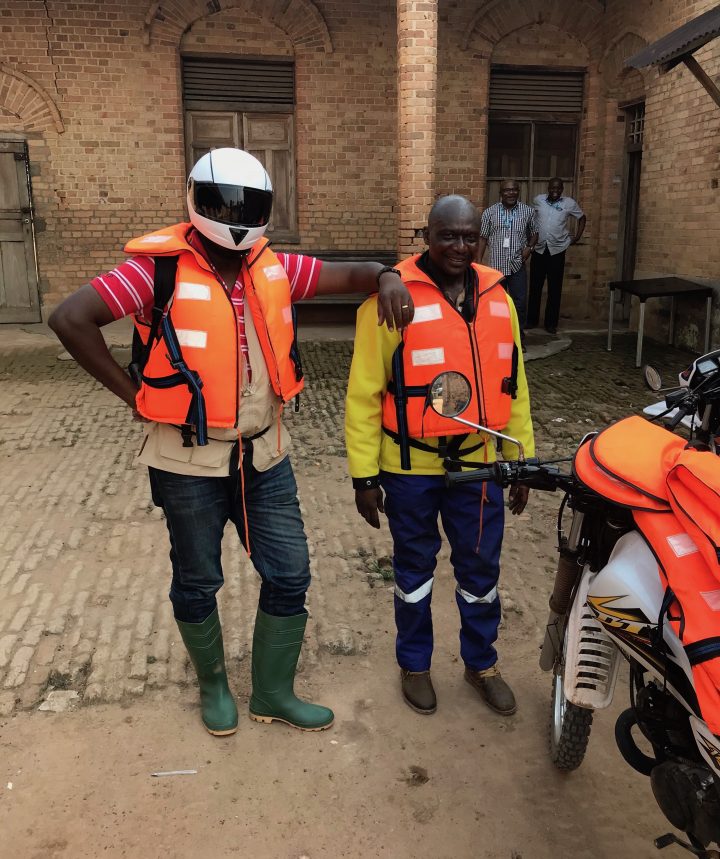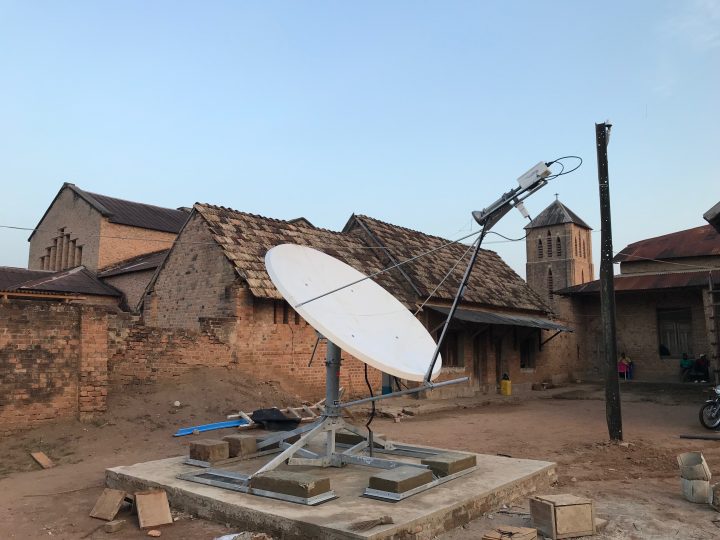
Recent violence in southern border areas of Central African Republic (CAR) is driving more people to flee their homes and cross into remote areas of northern Democratic Republic of the Congo (DRC), putting immense pressure on difficult-to-reach local communities close to the border.
By Eimear McNamara, ICT Communication Assistant, Geneva
Bats, two-hour motorcycle rides, and river-crossings by pirogue – when it comes to getting remote field offices connected in the Democratic Republic of the Congo, UNHCR’s Information and Communications Technology (ICT) team take it all in their stride.
Their focus this time around was Monga, Bas-Uele province. In recent years, Bas-Uele has found itself playing host to large numbers of people fleeing the surge in violence in southern border areas of the Central African Republic, with local communities overwhelmed by the suddenness and scale of the latest influx, which began in May 2017.
As part of UNHCR’s comprehensive response to this situation, a field office was opened in Monga, an area known to be a little off-grid, as Chakfalbo Padire Mahamat, Associate ICT Officer in Kinshasa, explains: “There’s no airstrip for airplane access, no passable road for vehicles or trucks – the only way to access Monga is by motorcycle, and two river crossings by canoe. So all the equipment, office furniture, building materials, and everything we installed had to be transported in the same way.”

© UNHCR/ Chakfalbo Padire Mahamat, Associate ICT Officer in Kinshasa with his talented transporter having arrived via motorbike in Monga. With no airstrip for airplane access and no passable road for vehicles or trucks, everything had to be transported by motorcycle, including the 2.4m satellite terminal.
The unique circumstances brought out the best in the team, notes Muhigirwa Justin Barazige, ICT Assistant in Monga: “People were learning every day, and I was no exception,” he says. “Through the installation of our Monga office, I learned a lot from my ICT colleagues, and I intend to use this new knowledge in UNHCR’s future projects.”
The Monga office now sits in an old building belonging to the Catholic Church, adjoining a forest, which means the team are still facing some unusual challenges: “Day and night, we get bitten by mosquitoes and at night we cohabit with bats,” Padire laughs.
Even so, it’s a long way from what greeted the team upon their arrival at the site: “There was no source of internet connection, and the reports were by phone,” Padire recalls. “There was no computer equipment to even enter reports.” The installation has brought UNHCR and partners in Monga online – the connection is now being used in the biometric registration of refugees, and staff rely on it to keep in touch with families and friends. “Their well-being is improved,” Padire says simply.

© Satellite terminal bringing UNHCR and partners online
Monga is now a little less remote, and the willingness of the ICT team to go the extra mile for their work, whether by motorbike or pirogue, means that UNHCR can continue to deliver life-changing, and life-saving, assistance to those who need it most.
Read more about UNHCR’s work in the Democratic Republic of the Congo here.
